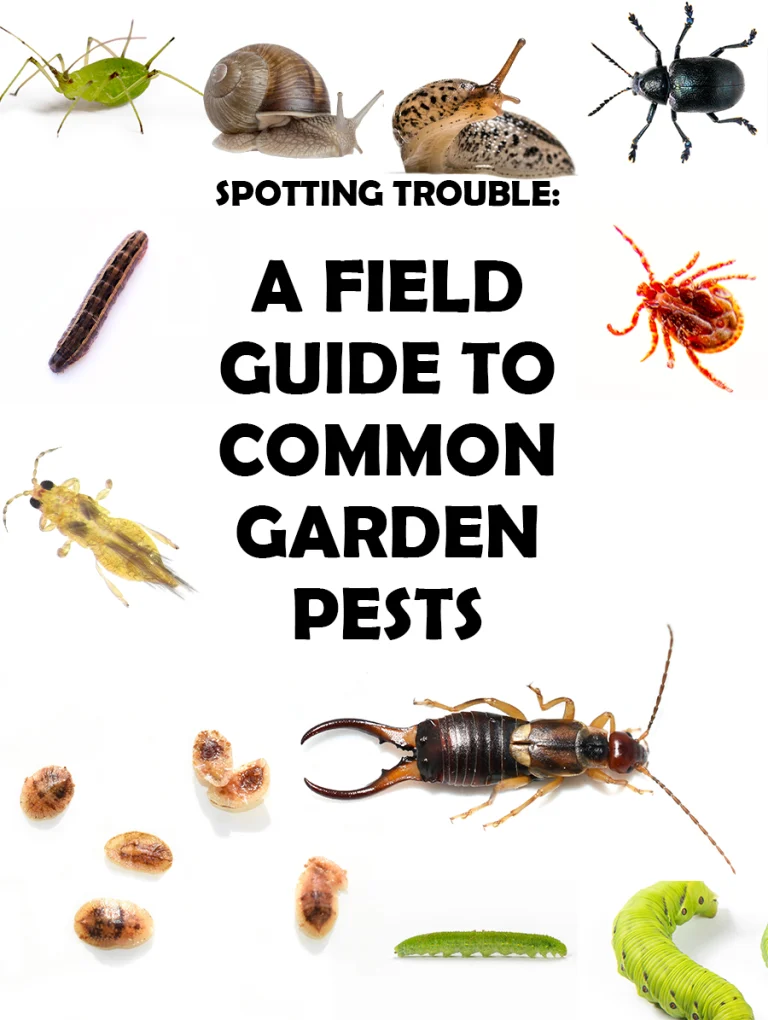A thriving garden can quickly become a battleground when pests arrive. While insects and other critters are part of the ecosystem, some can damage plants, reduce yields, and frustrate gardeners. The good news is that you don’t need harsh chemicals to protect your garden. Natural pest control methods can keep your plants healthy while preserving beneficial insects and the environment.
This guide explores common garden pests and eco-friendly strategies to manage them effectively.
1. Aphids
Aphids are tiny, soft-bodied insects that cluster on new growth, sucking plant sap and leaving behind sticky honeydew that can encourage mold growth.
Natural Control Methods:
- Introduce Beneficial Insects: Ladybugs and lacewings feed on aphids.
- Spray with Water: A strong jet of water can dislodge them from plants.
- Neem Oil or Insecticidal Soap: Safe for most plants and effective against aphids.
- Companion Planting: Plant garlic, chives, or marigolds nearby to repel aphids naturally.
2. Slugs and Snails
Slugs and snails are notorious for chewing holes in leaves, especially in damp, shaded areas.
Natural Control Methods:
- Beer Traps: Place shallow containers filled with beer to attract and drown them.
- Handpicking: Remove them during early morning or evening when they are active.
- Copper Barriers: Place copper tape around planters; contact gives them a harmless electric shock.
- Encourage Predators: Frogs, toads, and ground beetles feed on slugs and snails.
3. Caterpillars
Caterpillars can devour leaves, flowers, and even fruit. While some will become butterflies or moths, heavy infestations can harm your garden.
Natural Control Methods:
- Handpick: Remove caterpillars by hand if infestations are small.
- Bacillus thuringiensis (Bt): A naturally occurring bacterium that targets caterpillars but is safe for humans and beneficial insects.
- Companion Planting: Dill, fennel, and nasturtium can repel or distract caterpillars.
4. Whiteflies
Whiteflies are tiny, flying insects that feed on plant sap and cause yellowing leaves. They also produce honeydew, attracting sooty mold.
Natural Control Methods:
- Sticky Traps: Yellow sticky traps capture flying adults.
- Insecticidal Soap: Spray leaves thoroughly, especially the undersides.
- Introduce Predators: Ladybugs, lacewings, and predatory wasps reduce whitefly populations.
- Reflective Mulch: Reflective surfaces can confuse and repel whiteflies.
5. Spider Mites
Spider mites are microscopic pests that thrive in hot, dry conditions. They suck plant sap, causing stippling, yellowing, and fine webbing.
Natural Control Methods:
- Water Spray: Wash off mites with a strong stream of water.
- Increase Humidity: Mist plants regularly; spider mites prefer dry environments.
- Predatory Mites: Release natural predators that feed on spider mites.
- Neem Oil: Effective when sprayed directly on affected areas.
6. Leaf Miners
Leaf miners are larvae that tunnel through leaves, leaving visible trails that reduce photosynthesis.
Natural Control Methods:
- Remove Affected Leaves: Cut off and destroy damaged leaves to prevent spread.
- Companion Planting: Marigolds and basil can deter adult insects from laying eggs.
- Beneficial Insects: Parasitic wasps prey on leaf miners.
7. Mealybugs
Mealybugs are soft, white, cottony pests that cluster on stems and leaf joints, feeding on plant sap and causing stunted growth.
Natural Control Methods:
- Rubbing Alcohol: Dab affected areas with cotton soaked in rubbing alcohol.
- Insecticidal Soap: Apply to suffocate pests.
- Introduce Predators: Ladybugs and lacewings feed on mealybugs.
8. Garden Beetles
Beetles such as Japanese beetles can skeletonize leaves, eat flowers, and damage fruits.
Natural Control Methods:
- Handpicking: Collect beetles in a bucket of soapy water.
- Neem Oil: Repels and disrupts their life cycle.
- Row Covers: Protect vulnerable plants during peak beetle season.
- Encourage Birds: Birds feed on adult beetles and larvae.
9. Cutworms
Cutworms are nocturnal larvae that cut seedlings at the base, often killing young plants.
Natural Control Methods:
- Collars Around Seedlings: Use cardboard or foil rings to protect stems.
- Handpick at Night: Search for cutworms under soil or mulch.
- Beneficial Nematodes: Introduce nematodes to soil to target larvae naturally.
10. Scale Insects
Scale insects attach themselves to stems and leaves, sucking sap and excreting honeydew. They can weaken plants significantly.
Natural Control Methods:
- Manual Removal: Use a toothbrush or cotton swab dipped in alcohol.
- Insecticidal Soap or Neem Oil: Smother scale insects without harming plants.
- Introduce Predators: Parasitic wasps and ladybugs feed on scale insects.
General Natural Pest Control Tips
- Encourage Biodiversity: Plant a mix of flowers, herbs, and shrubs to attract beneficial insects.
- Maintain Healthy Soil: Strong plants are more resistant to pests. Compost and organic matter improve soil health.
- Rotate Crops: Reduces pest buildup in the soil.
- Use Barriers: Row covers, netting, and collars protect vulnerable plants.
- Regular Inspection: Early detection prevents infestations from spreading.

